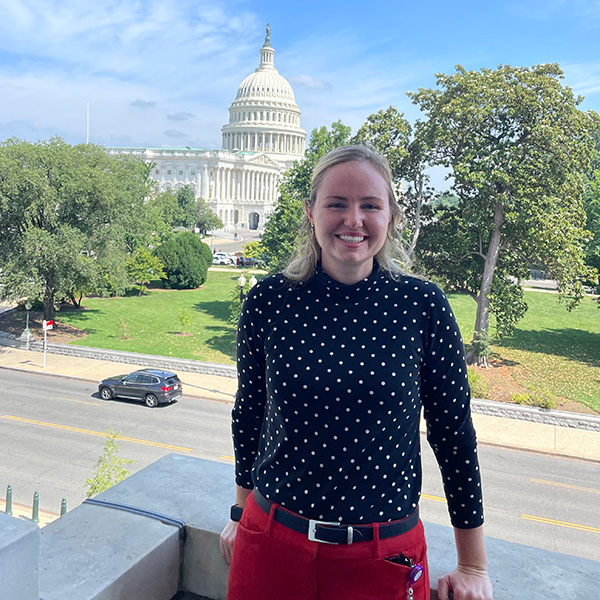
The past few months have been full of stimulating tech policy news, from analysis of a Congressional TikTok “ban” to discussions about the role of digital public infrastructure in India’s elections, and I’ve been thrilled to have the opportunity to explore, deliberate, and reflect on such news while at SPIA. The school has experienced an explosion of interest, from faculty and students alike, in issues like broadband access, net neutrality, and the ethics of artificial intelligence. As a second year MPA student who would love to work in tech policy for the federal government some day, the timing could not be better!
With that in mind, I would love to share a little more about what drew me to SPIA in the first place. Before arriving at Princeton, I spent three years working in crisis management for Meta, where I helped prevent user and reputational harm through policy and product changes. The work was fulfilling but exhausting, and I struggled to find the time and space to reflect on the company’s practices and the greater industry reckoning with safety, election integrity, and data privacy. I came to SPIA with really only one thing in mind; I was looking for some long-lost inspiration and positivity - some solutions that could animate and energize me after years of dealing with the deep dark internet.
Here on campus, I found some of the most well-intentioned and empathetic people I’ve ever had the chance to meet, but I also discovered a wealth of opportunities to dissect the most complex tech policy challenges in a thought-provoking and non-judgemental space. I’ve taken classes on data privacy, machine learning, and content moderation. My first spring at Princeton, I applied for a Social Impact Fellowship with the Responsible AI Institute (RAII) through GradFutures, the university’s graduate student professional development hub. Not only did Princeton pay me to work for RAII, but they also uplifted my RAII-sponsored research on the national AI inventory and empowered me to moderate events on generative AI.
Thanks to SPIA, I traveled to the Code for America annual conference in Washington, D.C. in May of 2023 and will soon be on my way to the AI Expo for National Competitiveness in a few weeks. Networking aside, I have most appreciated the exposure to groundbreaking ideas that happens when SPIA pays for me to go meet so many cool people! Every year, SPIA hosts a Public Management conference, and this year the theme was “Leadership and Innovation in the New Normal of Work from Home and Ubiquitous AI,” so I was clearly in my element. Guests ranged from the Head of Strategic Partnerships at OpenAI to the General Manager of Microsoft Worldwide Education.
By far my favorite experience was serving as a teaching assistant (TA) for an undergraduate taskforce, taught by Mihir Kshirsagar, that sought to provide the Wikimedia Foundation with recommendations for reforming Section 230. Thanks to that TA role, I’m now working with Mihir on research related to digital public infrastructure! As my two years at SPIA come to a close, it’s satisfying to see tech policy on the up-and-up at such a well-respected school.

